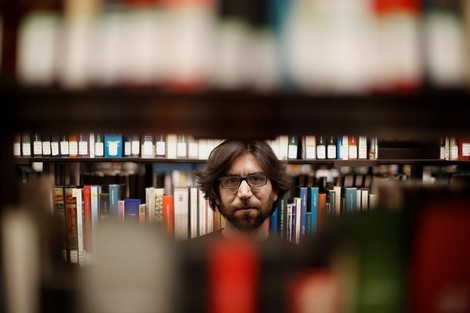Your podcast discovery platform
Curious minds select the most fascinating podcasts from around the world. Discover hand-piqd audio recommendations on your favorite topics.

piqer for: Globalization and politics Global finds
I am an Australian freelance journalist focussing on conflicts, politics, and warzones around the world. I have been working as a journalist for over 5 years, having reported from Australia, Germany, China, Egypt, Palestine, and Ukraine. I am especially interested in the way that new technologies are being used in conflict zones in unexpected and often disturbing ways. During my time working as a journalist, I also co-founded open-source war reporting site Conflict News.
Chronicler Of Islamic State ‘Killing Machine’ Goes Public
When the Iraqi city of Mosul was overrun by the Islamic State in 2014, the world was stunned and horrified. As the terrorist group began its crackdown on local media, activists and indeed average citizens, the outside world had little information to go on. Intelligence agencies and the media were often times forced to rely on IS's own propaganda videos and social media content in order to glean what was going on in the city.
But one person still told the truth from within Mosul, no matter the cost.
Calling himself 'Mosul Eye', this activist shared daily updates about life in the city, and the countless crimes conducted by IS as its brutal occupation continued. As the days stretched into months, and then years, Mosul Eye became a critical source not just for journalists and researchers but also for military planners and politicians.
But this was an occupation which carried a near-suicidal level of risk. IS carried out brutal executions of anyone it suspected of working against the group, and Mosul Eye himself attended many such executions as an attempt to document these crimes. He knew full well, that if he was caught, he would face certain death, likely in the form of one of the many creative medieval punishments IS took delight in.
Lori Hinnant and Maggie Michael's article for AP shines a light on these risks and the immense pressure this put on this extraordinary man. It catalogues his double life in Mosul, and his eventual decision to flee, first to Turkey and then on to Europe. More importantly, however, it was the first article in which Mosul Eye decided to go public with his identity: a 31-year-old historian named Omar Mohammed.
Stay up to date – with a newsletter from your channel on Globalization and politics.
